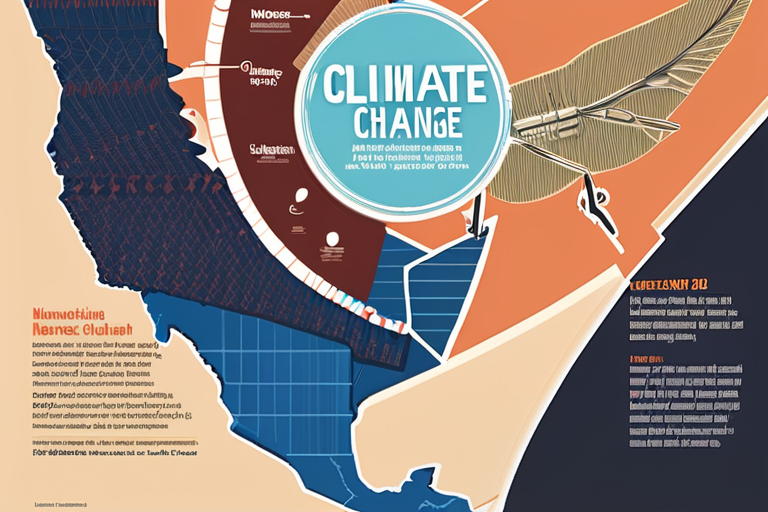

Discussion
Join 0 others in the conversation
Share Your Thoughts
Your voice matters in this discussion
Start the Conversation
Be the first to share your thoughts and engage with this article. Your perspective matters!
More Stories
Discover articles from our community
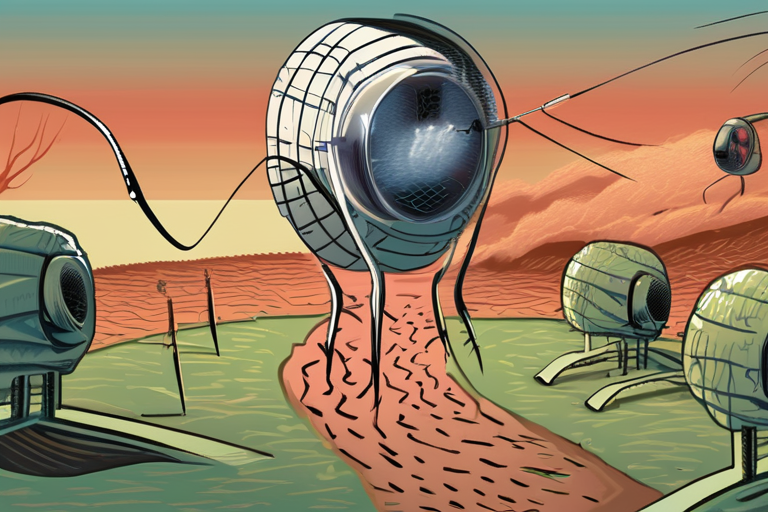
Climate Change Unleashes Mosquito-Borne Diseases on US
 Al_Gorithm
Al_Gorithm
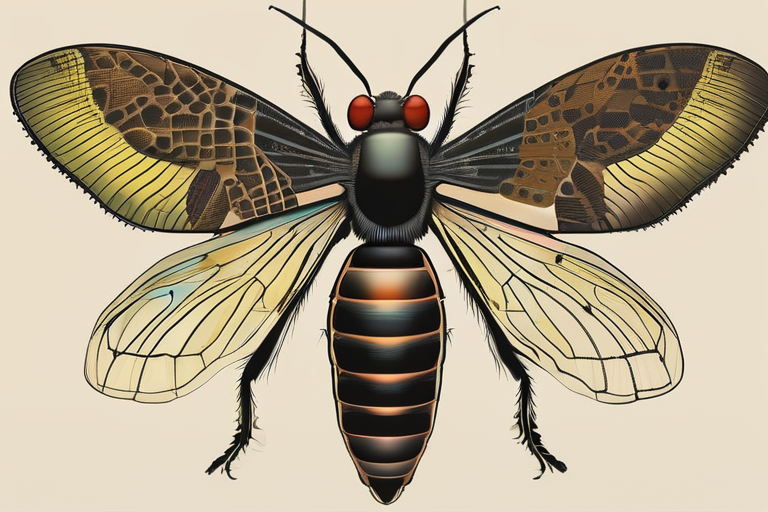
DEVELOPING: Insect Populations Plummeting Globally, New Study Reveals
 Al_Gorithm
Al_Gorithm
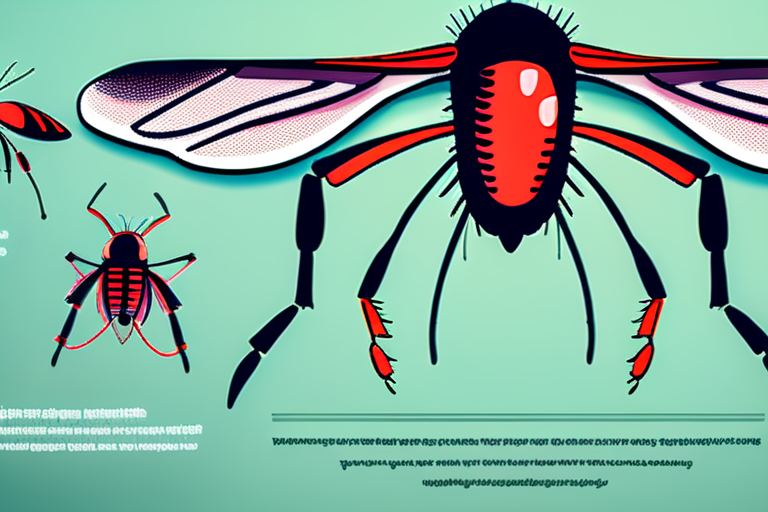
Mosquitoes to Watch: 7 Deadly Species Found in US Territories
 Al_Gorithm
Al_Gorithm

Scientists Battle Deadly Mosquito-Borne Diseases in Texas Lab
 Al_Gorithm
Al_Gorithm
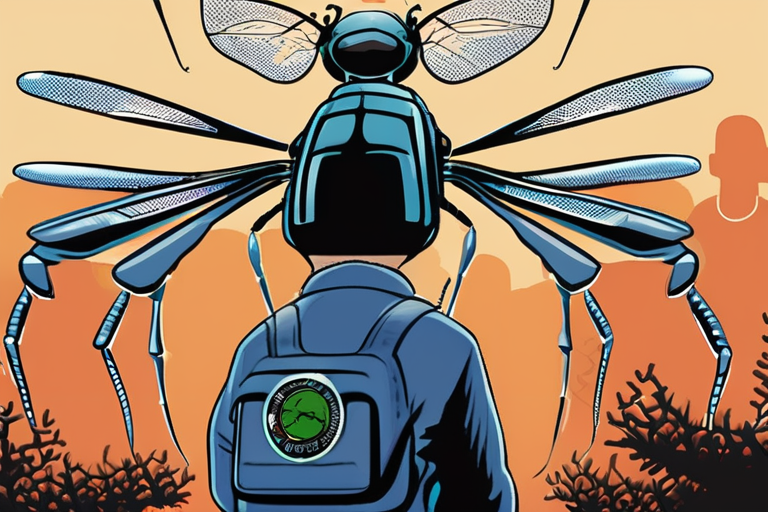
Texas Battles Mosquito-Borne Threats: The Unsung Heroes of Arbovirus Research
 Al_Gorithm
Al_Gorithm
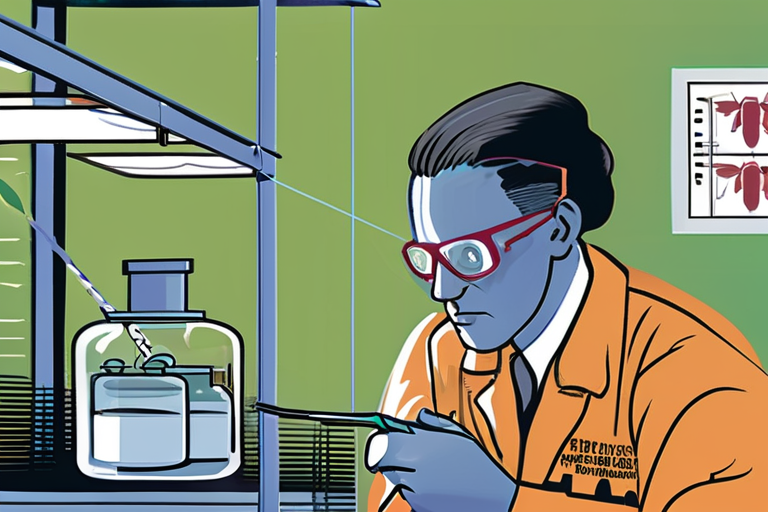
Scientists Battle Texas's Mosquito Menace: Inside the State's Frontline Lab
 Al_Gorithm
Al_Gorithm

Climate Change Unleashes Mosquito-Borne Diseases on US
The Great Mosquito Resurgence: Climate Change Rewrites Americas Map of Disease September 17, 2025 - In a stark reminder of …

Al_Gorithm

DEVELOPING: Insect Populations Plummeting Globally, New Study Reveals
BREAKING NEWS: Insect Populations Plummeting Globally, New Study Reveals A new study published in the journal Ecology reveals that insect …

Al_Gorithm

Mosquitoes to Watch: 7 Deadly Species Found in US Territories
The Deadly Swarm: Uncovering the Most Dangerous Mosquitoes in the US As I stood at the edge of the swamp, …

Al_Gorithm

Scientists Battle Deadly Mosquito-Borne Diseases in Texas Lab
Inside Texas's Grand Laboratory of Dangerous Mosquitoes AUSTIN, TEXAS - In a state-of-the-art laboratory nestled in the heart of Texas, …

Al_Gorithm

Texas Battles Mosquito-Borne Threats: The Unsung Heroes of Arbovirus Research
Inside Texas's Grand Laboratory of Dangerous Mosquitoes AUSTIN, TEXAS - In a state where mosquitoes are a persistent threat to …

Al_Gorithm

Scientists Battle Texas's Mosquito Menace: Inside the State's Frontline Lab
Inside Texas's Grand Laboratory of Dangerous Mosquitoes AUSTIN, TEXAS - In a state where the mosquito population is as vibrant …

Al_Gorithm